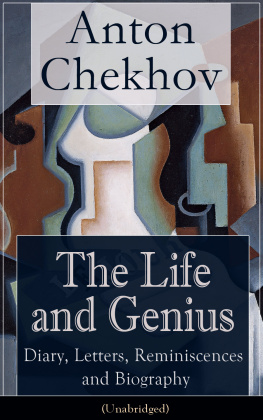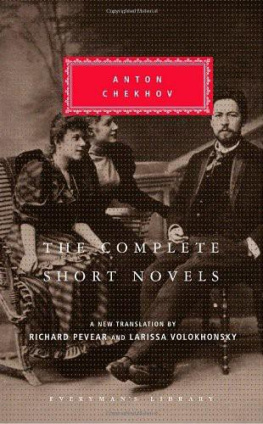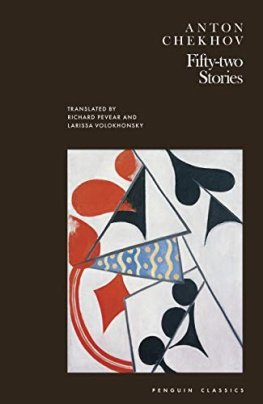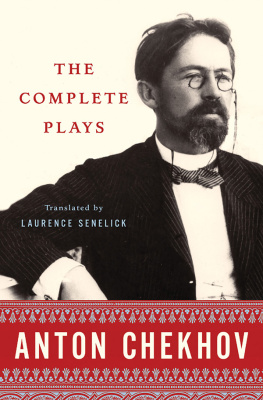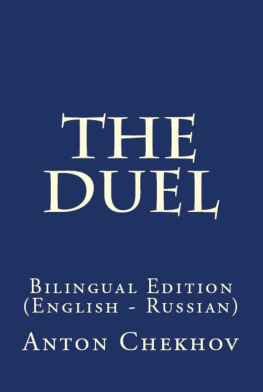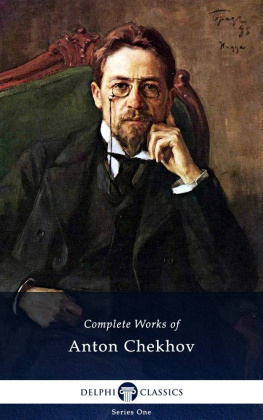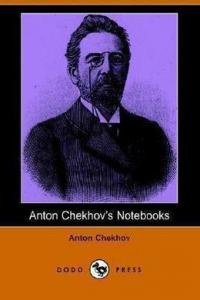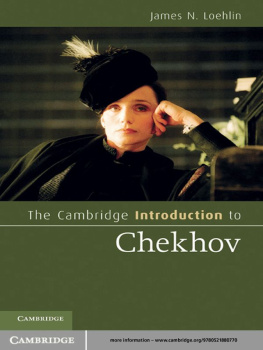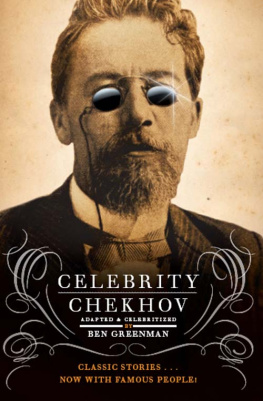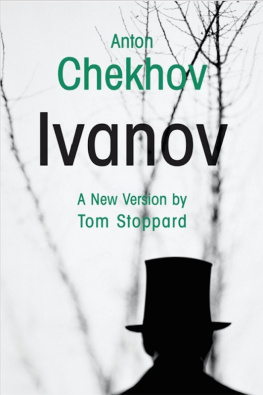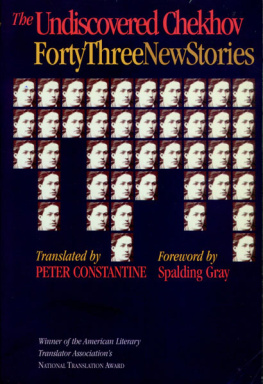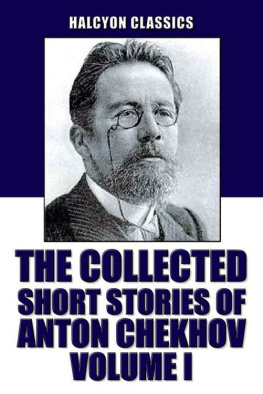Biography by Constance Garnett
In 1841 a serf belonging to a Russian nobleman purchased his freedom and the freedom of his family for 3,500 roubles, being at the rate of 700 roubles a soul, with one daughter, Alexandra, thrown in for nothing. The grandson of this serf was Anton Chekhov, the author; the son of the nobleman was Tchertkov, the Tolstoyan and friend of Tolstoy.
There is in this nothing striking to a Russian, but to the English student it is sufficiently significant for several reasons. It illustrates how recent a growth was the educated middle-class in pre-revolutionary Russia, and it shows, what is perhaps more significant, the homogeneity of the Russian people, and their capacity for completely changing their whole way of life.
Chekhovs father started life as a slave, but the son of this slave was even more sensitive to the Arts, more innately civilized and in love with the things of the mind than the son of the slaveowner. Chekhovs father, Pavel Yegorovitch, had a passion for music and singing; while he was still a serf boy he learned to read music at sight and to play the violin. A few years after his freedom had been purchased he settled at Taganrog, a town on the Sea of Azov, where he afterwards opened a Colonial Stores.
This business did well until the construction of the railway to Vladikavkaz, which greatly diminished the importance of Taganrog as a port and a trading centre. But Pavel Yegorovitch was always inclined to neglect his business. He took an active part in all the affairs of the town, devoted himself to church singing, conducted the choir, played on the violin, and painted ikons.
In 1854 he married Yevgenia Yakovlevna Morozov, the daughter of a cloth merchant of fairly good education who had settled down at Taganrog after a life spent in travelling about Russia in the course of his business.
There were six children, five of whom were boys, Anton being the third son. The family was an ordinary patriarchal household of the kind common at that time. The father was severe, and in exceptional cases even went so far as to chastise his children, but they all lived on warm and affectionate terms. Everyone got up early, the boys went to the high school, and when they returned learned their lessons. All of them had their hobbies. The eldest, Alexandr, would construct an electric battery, Nikolay used to draw, Ivan to bind books, while Anton was always writing stories. In the evening, when their father came home from the shop, there was choral singing or a duet.
Pavel Yegorovitch trained his children into a regular choir, taught them to sing music at sight, and play on the violin, while at one time they had a music teacher for the piano too. There was also a French governess who came to teach the children languages. Every Saturday the whole family went to the evening service, and on their return sang hymns and burned incense. On Sunday morning they went to early mass, after which they all sang hymns in chorus at home. Anton had to learn the whole church service by heart and sing it over with his brothers.
The chief characteristic distinguishing the Chekhov family from their neighbours was their habit of singing and having religious services at home.
Though the boys had often to take their fathers place in the shop, they had leisure enough to enjoy themselves. They sometimes went for whole days to the sea fishing, played Russian tennis, and went for excursions to their grandfathers in the country. Anton was a sturdy, lively boy, extremely intelligent, and inexhaustible in jokes and enterprises of all kinds. He used to get up lectures and performances, and was always acting and mimicking. As children, the brothers got up a performance of Gogols Inspector General, in which Anton took the part of Gorodnitchy. One of Antons favourite improvisations was a scene in which the Governor of the town attended church parade at a festival and stood in the centre of the church, on a rug surrounded by foreign consuls. Anton, dressed in his highschool uniform, with his grandfathers old sabre coming to his shoulder, used to act the part of the Governor with extraordinary subtlety and carry out a review of imaginary Cossacks. Often the children would gather round their mother or their old nurse to hear stories.
Chekhovs story Happiness was written under the influence of one of his nurses tales, which were always of the mysterious, of the extraordinary, of the terrible, and poetical.
Their mother, on the other hand, told the children stories of real life, describing how she had travelled all over Russia as a little girl, how the Allies had bombarded Taganrog during the Crimean War, and how hard life had been for the peasants in the days of serfdom. She instilled into her children a hatred of brutality and a feeling of regard for all who were in an inferior position, and for birds and animals.
Chekhov in later years used to say: Our talents we got from our father, but our soul from our mother.
In 1875 the two elder boys went to Moscow.
After their departure the business went from bad to worse, and the family sank into poverty.
In 1876 Pavel Yegorovitch closed his shop, and went to join his sons in Moscow. While earning their own living, one was a student at the University, and the other a student at the School of Sculpture and Painting. The house was sold by auction, one of the creditors took all the furniture, and Chekhovs mother was left with nothing. Some months afterwards she went to rejoin her husband in Moscow, taking the younger children with her, while Anton, who was then sixteen, lived on in solitude at Taganrog for three whole years, earning his own living, and paying for his education at the high school.
He lived in the house that had been his fathers, in the family of one Selivanov, the creditor who had bought it, and gave lessons to the latters nephew, a Cossack. He went with his pupil to the latters house in the country, and learned to ride and shoot. During the last two years he was very fond of the society of the highschool girls, and used to tell his brothers that he had had the most delightful flirtations.
At the same time he went frequently to the theatre and was very fond of French melodramas, so that he was by no means crushed by his early struggle for existence. In 1879 he went to Moscow to enter the University, bringing with him two schoolfellows who boarded with his family. He found his father had just succeeded in getting work away from home, so that from the first day of his arrival he found himself head of the family, every member of which had to work for their common livelihood. Even little Mihail used to copy out lectures for students, and so made a little money. It was the absolute necessity of earning money to pay for his fees at the University and to help in supporting the household that forced Anton to write. That winter he wrote his first published story, A Letter to a Learned Neighbour. All the members of the family were closely bound together round one common centre Anton. What will Anton say? was always their uppermost thought on every occasion.
Ivan soon became the master of the parish school at Voskresensk, a little town in the Moscow province. Living was cheap there, so the other members of the family spent the summer there; they were joined by Anton when he had taken his degree, and the Chekhovs soon had a large circle of friends in the neighbourhood. Every day the company met, went long walks, played croquet, discussed politics, read aloud, and went into raptures over Shtchedrin. Here Chekhov gained an insight into military society which he afterwards turned to account in his play The Three Sisters.
One day a young doctor called Uspensky came in from Zvenigorod, a small town fourteen miles away. Look here, he said to Chekhov, I am going away for a holiday and cant find anyone to take my place. You take the job on. My Pelageya will cook for you, and there is a guitar there.

